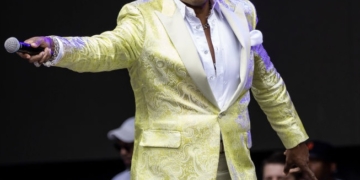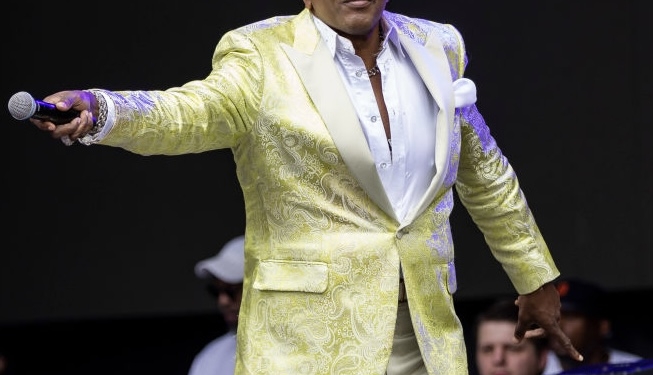Alexander Morris went to the hospital in cardiac distress. Instead of getting medical care for his heart, he was put in a straightjacket.
Morris, the lead singer of Motown’s legendary Four Tops is now suing Ascension Macomb-Oakland Hospital in Warren, Michigan, for racial discrimination, NBC News reported.
Morris, 53, alleges the hospital staff thought he was “delusional” when he said he was in the Four Tops and put him in a straightjacket.
Morris, who joined the group in 2018, went to the hospital April 7, 2023, with “clear symptoms of cardiac distress.”
He had difficulty breathing and chest pain. He was placed on oxygen, the lawsuit filed in the eastern district of Michigan said.
According to the lawsuit, Morris told the hospital staff he was concerned for his safety due to fans and stalkers.
However, the staff thought he was mentally ill. Workers restrained him and ordered a psychiatric evaluation.
He was restrained for at least an hour and a half.
The hospital and two staffers — a nurse and a security guard — are accused of negligence, racial discrimination, battery and intentional infliction of emotional distress.
“It was a terrifying experience to be in the middle of a medical emergency, to be placed into restraints, to have my oxygen turned off, my personal effects taken from me, and no help from the doctors and nurses because of the color of my skin. Racial profiling nearly cost me my life,” Morris said in a statement through his attorneys Tuesday.
Morris has a “significant known history of cardiac disease.” This includes the placement of stints and defibrillator, according to the lawsuit.
He was ultimately diagnosed “with a heart infraction that may require a heart transplant, pneumonia, and he suffered three seizures during his stay.”
However, his treatment was delayed because hospital staffers didn’t believe he was a member of the Four Tops.
According to the lawsuit, a white security guard and a white male emergency room doctor “racially profiled him” and “wrongfully assumed he was mentally ill when he revealed his identity as a celebrity figure.”
Hospital staff removed the oxygen he was receiving and proceeded with a psychiatric evaluation.
When Morris asked if he could prove his identity, the white male security guard ordered him to “sit his Black ass down,” the complaint said.
“He was told he was not free to leave; thus, he was falsely imprisoned and deprived of his personal property. During this time his medical condition continuously declined and he was denied the medical treatment he desperately needed,” the lawsuit said.
Morris’ wife saw what was happening and informed one of the security officers that he actually was a member of the Four Tops.
A video of him performing at the Grammys corroborated his story.
The psychological evaluation was cancelled.
The restraint jacket was removed and Morris was placed back on oxygen, the complaint said.
Morris was offered a $25 gift card to Meijer as an apology, but he refused.
The ordeal delayed Morris’ treatment and caused him “severe mental and psychological suffering,” the suit said.
The suit alleges racial discrimination, violation of civil rights, negligence, gross negligence, battery, false imprisonment, intentional infliction of emotional distress, violation of the Disabilities Act.
Morris is seeking an excess of $75,000 in damages and demands a jury by trial.
“I see all of these posts on social media like ‘driving while black,’ ‘walking while black,’ but I never imagined I would become a victim of ‘being sick while Black,’” Morris said. “I filed the lawsuit to hold the hospital accountable for the way I was treated and to protect the younger generations from racism in healthcare.”
An Ascension Hospital spokesperson said, “We do not condone racial discrimination of any kind. We will not comment on pending litigation.”
“The health, safety and well-being of our patients, associates and community members remains our top priority. We remain committed to honoring human dignity and acting with integrity and compassion for all persons and the community,” the spokesperson said.

























